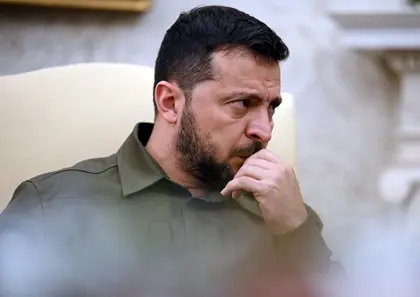The United States Congress and Senate are nearing a Saturday night deadline to approve a budget bill to fund the US government for the start of Fiscal Year 2024 on Oct. 1, 2023. At present, one of the major points of contention is that a growing number of Republicans no longer support spending on Ukraine.
According to the Hastert Rule – an informal rule among Republicans in the House of Representatives – for a bill to be brought to vote, a majority of the Republicans’ majority (which they currently have in the House) must be in favor of the bill. That math, however, leaves Ukraine at a disadvantage.
JOIN US ON TELEGRAM
Follow our coverage of the war on the @Kyivpost_official.
According to Steve Moore, a Republican strategist, Wednesday was “another small but significant event increasing the difficulty for the eventual passage of aid to Ukraine.”
Moore explained that “19 members of the House voted against aid to Ukraine for the first time out of the 6 opportunities to do so since the beginning of the war. This brings the total of Republicans who have voted against aid to Ukraine at least once to 122.”
However, Moore added that “many of the 122 likely saw this as a ‘free vote,’ meaning that they could vote yes on legislation that would cut aid to Ukraine that was never going to pass. That way they could go back to their constituents and tell them they voted against aid to Ukraine.” however,

‘Europe Must Stand Up’ – EU Lawmakers Clash Over Trump’s Return, Musk’s Political Meddling
Nonetheless, Moore argues that “with 122 members of the House voting against aid to Ukraine at least once, it provides the talking point that a majority of the Republican majority is against aid to Ukraine.”
Ultimately, he concludes: “This will make it more difficult to put Ukraine aid up for a vote.”
Aside from isolationists who have never supported Ukraine, Republican opposition to Ukraine is based on a number of factors that have grown over time.
One lobbyist indicated that since the war was a “Biden issue,” and as the US moves towards elections, it is playing a role. The calculus would be that if “Biden’s Ukraine” succeeds, it will be favorable to Biden’s re-election chances.”
Another faction of the Republican Party oppose what they view as Ukraine taking sides in America’s culture wars and aligning with the “woke agenda.”
In these cases, Ukraine’s reasoning for her actions was not made clear to American voters who interpreted the moves as being antithetical to their core “American values.” Some of the examples most cited were: President Zelensky’s statements on climate change; the recent spat between a US Senator and a transgender American member of the Ukrainian military; and the closing of Russian Orthodox Churches in Ukraine.
Some Republicans have argued that the delay of Ukrainian elections has made it hard to argue that Ukraine is “on our side,” of democracy, in contrast to the Putin regime. Although elections being delayed is not a disaster of sum importance, the lobbyist felt, it “gives just one more reason” to not take Ukraine’s side.
Where does Ukraine go from here?
Routinely the case has been made that Ukraine’s representatives, far away from Americans by distance and thought, must leave the halls of Washington and to connect with normal Americans through all means possible at the grassroots local level: Digital ads, TV ads, public events, news interviews, letters to local papers by people in favor of Ukraine, etc.
Whether that will save Ukraine remains to be seen. Time is short and immediate action is required, otherwise it is unclear if Ukraine will manage to avoid the cut.
It is key that Ukraine make the argument for why its support is a partnership that serves American interests – and not a hand-out of charity.
You can also highlight the text and press Ctrl + Enter










